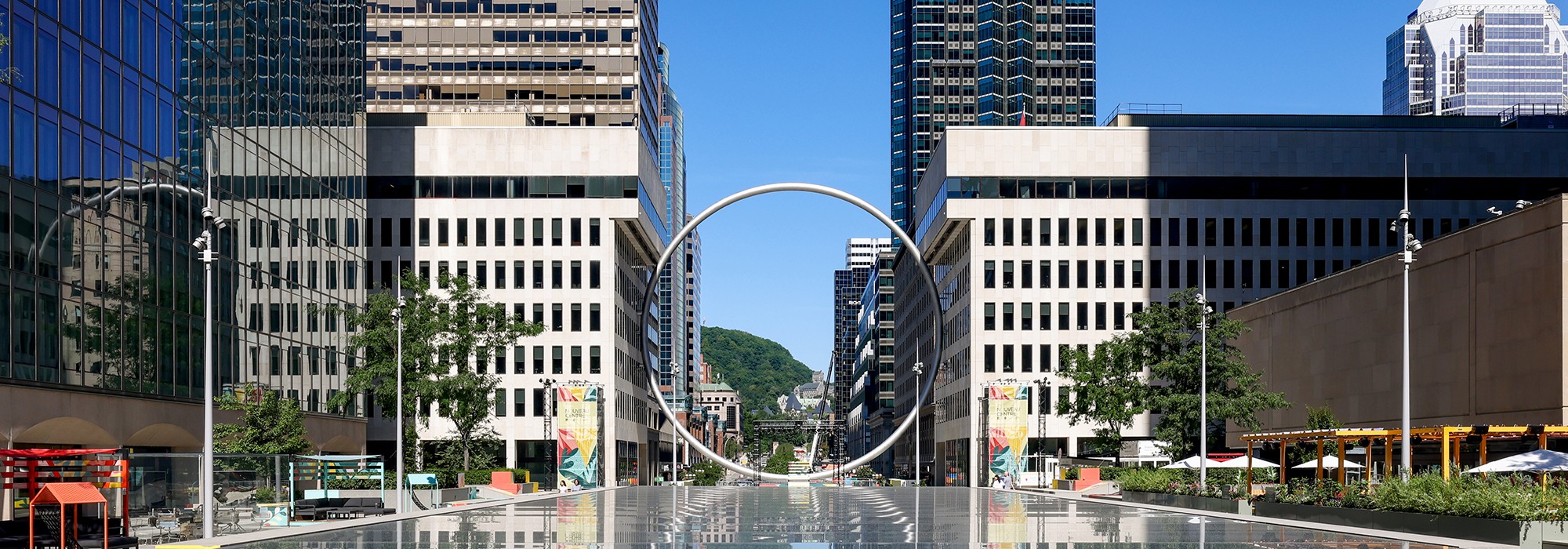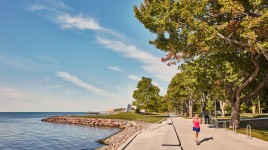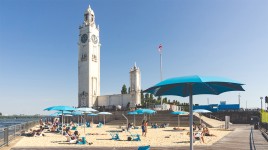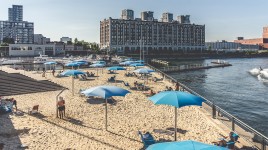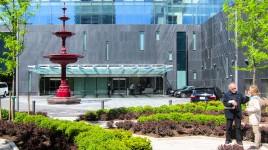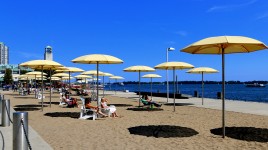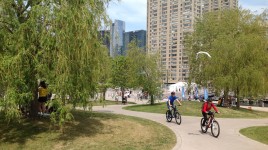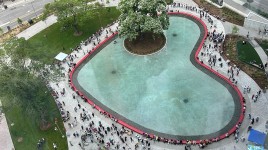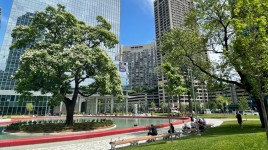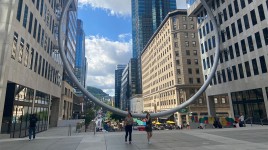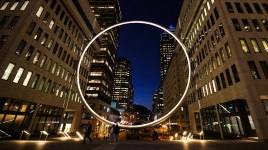Pioneer Information
Raised on a farm and sugarbush near Princeville, Québec, Cormier received a bachelor’s degree in Agronomy from the University of Guelph in 1982 and a B.L.A from the University of Toronto in 1986. In the early 1990s he enrolled in the Harvard University Graduate School of Design, where he was influenced by the theories of Frederick Law Olmsted, Sr. and Martha Schwartz (Cormier would later refer to the pair as his “parents.”) After graduating with a Master in Design Studies degree in 1994, Cormier established the landscape architecture firm Claude Cormier Architectes Paysagistes (now CCxA) in 1995.
Throughout his prolific career Cormier has humanized and transformed the urban civic realm often blurring the lines between landscape architecture and art. Rooted in rigorous historical, cultural, and ecological analysis, Cormier’s parks, plazas, urban waterfronts, and temporary and permanent installations often take everyday landscape features – rocks, fountains, trees, and umbrellas – and transforms their traditional associations by super-sizing them, slicing them in half, or altering their colors. His particular joie de vivre infuses his complex ground planes and sculptural forms that animate space and elicit public engagement and joyfulness.
Cormier’s gay identity was often an integral part of his practice. Projects, including the installations Pink Balls (2011-2016) and 18 Shades of Gay (2017-2019) spoke to his sexual orientation and his desire to create universally inclusive environments.
In 2019 Cormier was diagnosed with Li-Fraumeni Syndrome, a rare genetic condition that predisposes carriers to multiple cancers. His two last major works, The Ring (2022) and Love Park (2023) serve as love letters to his two cherished cities, Montréal, and Toronto. Cormier passed away at his Montréal home in September 2023.



